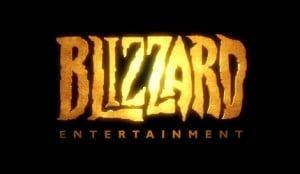
Blizzard hacked - the 5 things you should do
 Well, it's that time once again, to write an advice article after yet another major website is hacked.
Well, it's that time once again, to write an advice article after yet another major website is hacked.
Blizzard, the games developer responsible for the hugely popular (and brilliant) World of Warcraft and Diablo III, has announced that its Battle.net service has been hacked, resulting in user account information being stolen.
The pilfered information contains users' email addresses, answers to secret questions and 'scrambled passwords'. Blizzard are confident however that "credit cards, billing addresses and real names were not compromised" in the hack.
While Blizzard have moved to reassure users that the stolen data is not enough to access their accounts, they have advised that users should take the precaution of changing their account password. We quite agree, in fact, if you have a Battle.net account there are 5 things you need to do to protect yourself following this breach.
The 5 things to do
- Change your Battle.net password immediately
- If you use the same password on other sites change it on those too
- Make your new password(s) strong
- Never use the same password on different websites
- Be wary of phishing emails asking you to log into Battle.net and change your password.
Blizzard's Security Statement:
Even when you are in the business of fun, not every week ends up being fun. This week, our security team found an unauthorized and illegal access into our internal network here at Blizzard. We quickly took steps to close off this access and began working with law enforcement and security experts to investigate what happened.
At this time, we’ve found no evidence that financial information such as credit cards, billing addresses, or real names were compromised. Our investigation is ongoing, but so far nothing suggests that these pieces of information have been accessed.
Some data was illegally accessed, including a list of email addresses for global Battle.net users, outside of China. For players on North American servers (which generally includes players from North America, Latin America, Australia, New Zealand, and Southeast Asia) the answer to the personal security question, and information relating to Mobile and Dial-In Authenticators were also accessed. Based on what we currently know, this information alone is NOT enough for anyone to gain access to Battle.net accounts.
We also know that cryptographically scrambled versions of Battle.net passwords (not actual passwords) for players on North American servers were taken. We use Secure Remote Password protocol (SRP) to protect these passwords, which is designed to make it extremely difficult to extract the actual password, and also means that each password would have to be deciphered individually. As a precaution, however, we recommend that players on North American servers change their password. Please click this link to change your password. Moreover, if you have used the same or similar passwords for other purposes, you may want to consider changing those passwords as well.
Good Practice
Using different passwords on all of your websites isolates your exposure should one site be compromised. Making your new Battle.net password complex means should a similar incident happen in the future, it will be much more difficult for anyone to crack any stolen scrambled password.
A free password manager such as my1login will generate strong, complex passwords for you, and because you no longer have to remember them, you have the freedom to make all of your passwords unique, building a fortress around your online identity.
A final piece of advice: don't mess with the elves!!
 The article just wouldn't have been complete without a WoW character!
The article just wouldn't have been complete without a WoW character!
Further Reading:
Related Articles
The 3 Steps to Passwordless
More than 80% of all enterprise data breaches are made possible by weak or stolen passwords. The majority of employees who have already been scammed through...Ten Signs You Need to Modernise Your SSO Solution
Fernando Corbató invented the password in 1965. Since then, passwords have gone on to take over the world. However, the esteemed computer scientist was always...Identity and Access Management for Web, Mobile and Windows Desktop Applications
Identity and Access Management for Web, Mobile and Windows Desktop Applications










-
© My1Login 2007 - 2025
- Terms & Conditions
- Anti-Slavery Policy
- Back to the top ↑
